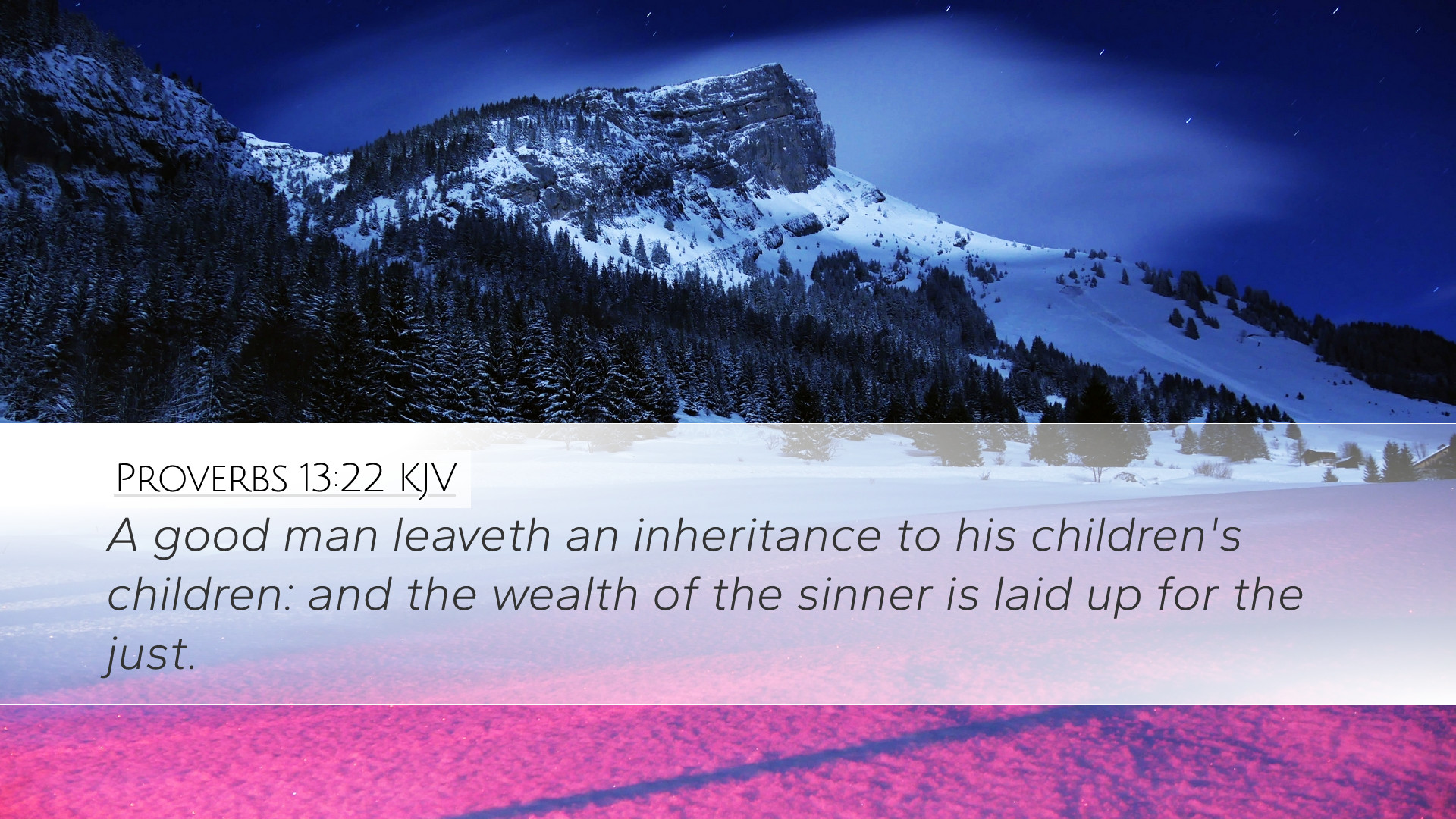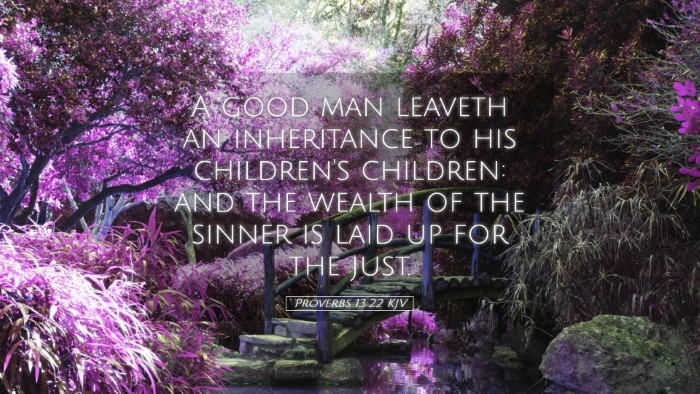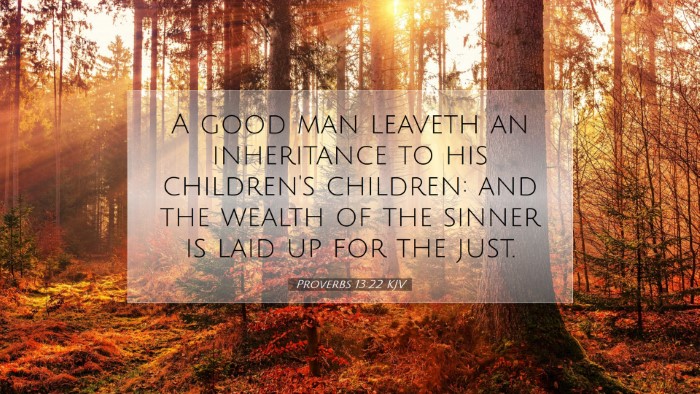Proverbs 13:22 Commentary
Verse Text: "A good man leaves an inheritance to his children’s children, but the sinner’s wealth is laid up for the righteous." (Proverbs 13:22, ESV)
Introduction
This verse from Proverbs presents a striking contrast between the fate of the righteous and the wicked, encapsulating timeless truths about legacy, moral responsibility, and divine justice. The insights from various public domain commentaries will enhance our understanding of this profound proverb.
Commentary Insights
1. Matthew Henry's Commentary
Matthew Henry highlights the remarkable notion that a virtuous man not only concerns himself with his immediate family but extends his legacy to future generations. He notes:
- The nature of the inheritance: A “good man” is defined as one who acts righteously, whose inherent goodness leads to lasting benefits for his descendants.
- Spiritual inheritance: The commentary emphasizes that the inheritance mentioned is not merely material wealth but includes wisdom, faith, and righteousness, which prosper future generations.
- Contrast with the sinner: Henry points out that while the sinner accumulates wealth, it ultimately serves a greater purpose—a transfer to the righteous, thereby demonstrating God’s justice and providence.
2. Albert Barnes' Notes on the Bible
Albert Barnes elaborates on the significance of the “good man” in Proverbs 13:22 by analyzing the concept of inheritance:
- Generosity of a righteous man: Barnes asserts that a good man's inheritance often reflects his character; he prepares not just for his children, but for future generations, emphasizing a rich spiritual legacy.
- Narrow view of the ‘sinner’: According to Barnes, the sinner's possessions are transient, lacking true substance—indicating that ill-gotten wealth does not endure and ultimately benefits the righteous.
- The role of providence: The wealth of the sinner, as Barnes elucidates, is a reminder that what may seem rewarding now can be transferred by divine orchestration to those who are just, illustrating that God's plans transcend human understanding.
3. Adam Clarke's Commentary
Adam Clarke provides a detailed exegesis on the implications of inheritance in the context of Proverbs 13:22, focusing on:
- The lasting impact of righteousness: Clarke notes that the decisions and actions of the righteous echo through time, leaving a legacy that benefits their grandchildren and promotes a lineage of virtue.
- The nature of an inheritance: He posits that the ‘inheritance’ encompasses both material and spiritual aspects—an encouragement for believers to pursue righteousness for the sake of present and future blessings.
- Insight on the sinner's state: Clarke observes that the ‘sinner's wealth’ might appear prosperous but is inherently futile, as it ultimately serves those aligned with God's will, reinforcing the theme of divine justice.
Thematic Reflections
As we reflect on Proverbs 13:22, several themes emerge that are significant for pastors, students, and theologians:
- The Importance of Legacy: The verse compels us to consider what kind of legacy we wish to leave. It encourages intentional living that prioritizes virtues to influence future generations positively.
- Spiritual vs. Material Wealth: The contrast between the good man and the sinner provokes a discussion on the true value of wealth and success, as defined by godly principles versus worldly measures.
- Divine Justice: The assurance that the righteous will ultimately benefit from what the wicked amass reinforces trust in God's sovereignty and moral order in the universe.
Practical Applications
How can we apply the teaching of Proverbs 13:22 in our lives today? Here are some suggestions:
- Building a Legacy: Encourage families to engage in discussions about what kind of inheritance they want to leave, ensuring it encompasses values and principles aligned with God’s Word.
- Seek Righteousness: Individuals and communities should strive to pursue righteousness actively, understanding that it has far-reaching effects beyond immediate personal gain.
- Trust in Providence: When faced with injustices in the distribution of wealth, Christians are reminded to maintain faith in God's plan, seeing beyond the present circumstances.
Conclusion
Proverbs 13:22 encapsulates the profound truths about moral integrity, the nature of true wealth, and the significance of leaving a righteous legacy. Insights from respected biblical commentaries deepen the understanding of this verse, urging readers to reflect on their lives' impact today and for generations to come. As we strive to embody the virtues illustrated in this proverb, we become vessels of God’s grace and blessings in the world.


